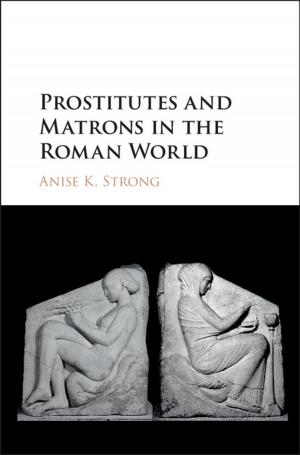The Cambridge Companion to Moliere
Fiction & Literature, Drama, Continental European, Nonfiction, Entertainment, Performing Arts| Author: | ISBN: | 9781139817264 | |
| Publisher: | Cambridge University Press | Publication: | September 14, 2006 |
| Imprint: | Cambridge University Press | Language: | English |
| Author: | |
| ISBN: | 9781139817264 |
| Publisher: | Cambridge University Press |
| Publication: | September 14, 2006 |
| Imprint: | Cambridge University Press |
| Language: | English |
A detailed introduction to Molière and his plays, this Companion evokes his own theatrical career, his theatres, patrons, the performers and theatre staff with whom he worked, and the various publics he and his troupes entertained with such success. It looks at his particular brands of comedy and satire. L'École des femmes, Le Tartuffe, Dom Juan, Le Misanthrope, L'Avare and Les Femmes savantes are examined from a variety of different viewpoints, and through the eyes of different ages and cultures. The comedies-ballets, a genre invented by Molière and his collaborators, are re-instated to the central position which they held in his œuvre in Molière's own lifetime; his two masterpieces in this genre, Le Bourgeois gentilhomme and Le Malade imaginaire, have chapters to themselves. Finally, the Companion looks at modern directors' theatre, exploring the central role played by productions of his work in successive 'revolutions' in the dramatic arts in France.
A detailed introduction to Molière and his plays, this Companion evokes his own theatrical career, his theatres, patrons, the performers and theatre staff with whom he worked, and the various publics he and his troupes entertained with such success. It looks at his particular brands of comedy and satire. L'École des femmes, Le Tartuffe, Dom Juan, Le Misanthrope, L'Avare and Les Femmes savantes are examined from a variety of different viewpoints, and through the eyes of different ages and cultures. The comedies-ballets, a genre invented by Molière and his collaborators, are re-instated to the central position which they held in his œuvre in Molière's own lifetime; his two masterpieces in this genre, Le Bourgeois gentilhomme and Le Malade imaginaire, have chapters to themselves. Finally, the Companion looks at modern directors' theatre, exploring the central role played by productions of his work in successive 'revolutions' in the dramatic arts in France.















